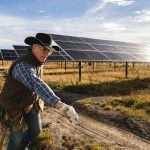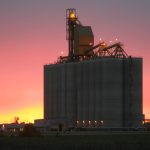Countertariffs have their place
Regarding the Bicks pickles issue, I agree with Sylvain Charlebois in his op ed on page 7 of the Sept. 4 issue that tariffs on food items can be complicated and should be carefully considered.
When they are applied, it should be on products that Canada can and should process ourselves. Any teenager with internet access could pickle cucumbers and there are many artisan pickle-processing companies with excellent products on the market. The same goes for wine, spirits and many other foods and beverages.
Read Also

Downturn in grain farm economics threatens to be long term
We might look back at this fall as the turning point in grain farm economics — the point where making money became really difficult.
I’m inclined to think that Charlebois is an apologist for the food processing industry.
His claim that margins in the grocery retail sector are “razor thin” is laughable. For example, the stock price for Loblaws is up 27 per cent over the past year. Investment companies know what’s profitable.
Charlebois has written many articles that show a negative bias toward dairy farmers and a superficial view of processing in that sector.
As for Bicks pickles, they can stick them where the sun don’t shine.
Joe Zink,
Calgary
Irrigation should not be taxpayer priority
In the Sept. 4 edition of the Western Producer, Stephen Johnston, a director of the Omnigence Asset Management investment fund, which owns about 140,000 acres of farmland and other assets, is the latest to tout the merits of government investing in irrigation projects.
He claims that Canada has the potential to increase farmland irrigation by 400 per cent.
One would think that private investors and large landowners would be willing to capitalize on these opportunities without taxpayer funds?
In his optimistic views of expanded irrigation, Mr. Johnston failed to acknowledge the fact that glaciers, which are the main source of water in the South Saskatchewan River, are disappearing at an alarming rate, and the devastating effect that reduced and altered water flows in the Cumberland River Delta (the largest inland river delta in North America) has had on biodiversity and the livelihoods of residents.
Before any more water development projects on the South Saskatchewan River are approved, a comprehensive environmental impact assessment is urgently required to determine the accumulative human impacts on the entire river.
Mr. Johnston asks, would taxpayers be willing to spend tens of billions of dollars to build dams, reservoirs and irrigate more farmland on the Prairies?
He did not answer his question. My response would be no.
Chances are the vast majority of rural and urban Saskatchewan taxpayers would much prefer seeing their tax dollars going to health care, education and other public services. And let’s not forget paying off our $30 billion debt.
Lorne Scott,
Indian Head, Sask.














